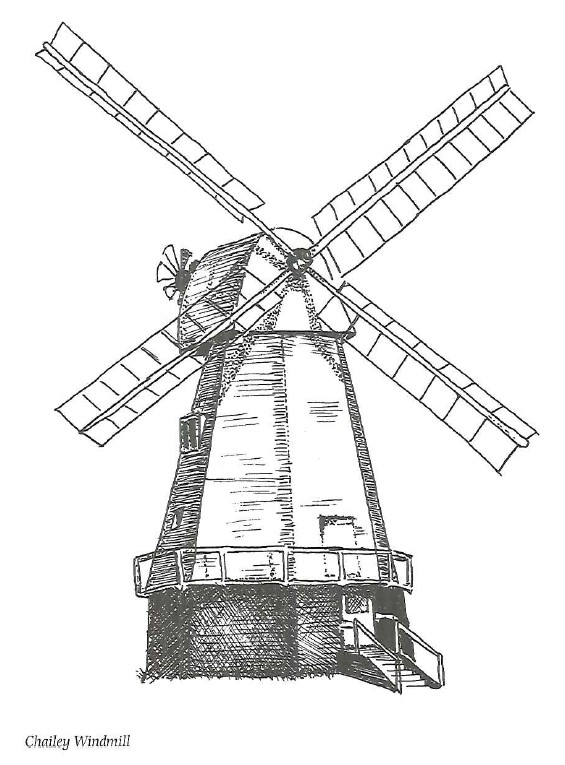When fire destroyed East Dean vicarage in 1665 it was the Selwyns of Friston Place who provided a replacement. They gave what is now known as the Old Parsonage and asked in return that a sermon, in memory of the Selwyn family, be preached annually in Friston church. It remained the vicarage until 1936 and just below it was one of the biggest bee farms in England.
Friston, along with its bigger neighbour, sent frequent petitions for a reduction in taxes because the crops were forever being laid waste by French raiding parties during the 14th century. The hamlet is peaceful enough today, with open hills leading to the sea on one side and miles of dense forest land on the other, though it does hold the distinction of being the last parish in the now defunct Hailsham Rural District to have a German bomb dropped on it.
The sea’s uncertain moods are reflected in the stark wooden cross in the churchyard which bears simply the words ‘washed ashore’. The distinguished composer Frank Bridge (1879-1941) lies here, too. He was a teacher to Benjamin Britten and deputised for Sir Henry Wood at the ‘Proms’.
Crowlink, The Hill of Crows’ which lies closer still to the coast, was the home of the author E. Nesbit, of The Railway Children fame, and the cellars of Crowlink House reputedly stored ‘Genuine Crowlink’ – smuggled gin which fetched high prices.
History does not record what misfortunes befell Simon Payn that forced him to leave Crowlink and accept Bayham Abbey’s charity. What we do know is that in 1290 the Abbot undertook to receive ‘Simon Payn of Friston and his wife Emma for as long as they shall live.’ His son Henry, daughters Constance and Godiva and four younger children were also to be cared for and the amount of food they were to be allowed throughout the year was carefully recorded.
Simon’s descendants seem to have had better luck, returning to Crowlink where they lived for generations. The name Payn is still to be found in the area.
